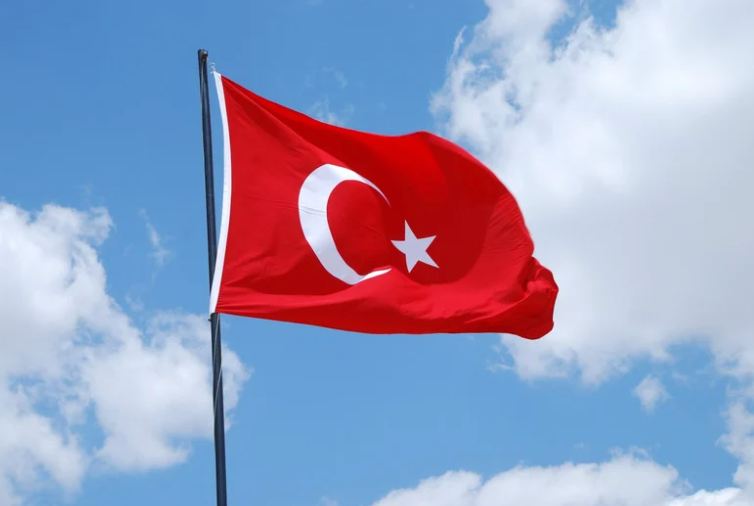Emerging Dynamics in Turkey’s Presidential Elections
Turkish politics are in a state of flux following the inconclusive results of the presidential election held on Sunday. The eventual outcomes of the elections are hinging on the decision of third-place candidate Sinan Oğan, who received approximately 7.3% of the vote. His endorsement is crucial as the country gears up for a runoff election scheduled for May 25 between the incumbent President Recep Tayyip Erdoğan, who garnered 47.2% of the vote in the first round, and opposition leader Kemal Kılıçdaroğlu, who received 45.5%.
Sinan Oğan’s Role in the Runoff
As a significant figure in Turkish politics, Oğan has emerged as a key player that both Erdoğan and Kılıçdaroğlu are now seeking to attract. He has made it clear that his decision will not be rushed, emphasizing his commitment to what he sees as Turkey’s national interests. “I will not rush into a decision,” Oğan stated at a press conference in Ankara, emphasizing the importance of Turkey’s sovereignty and security as priorities in the upcoming discussions with both candidates.
Oğan’s Key Demands
Oğan has outlined specific demands that he intends to prioritize in discussions with both presidential candidates. These include a firm stance on immigration policies, advocating for the repatriation of millions of Syrian refugees residing in Turkey, and a strong commitment to secular nationalism, which he believes is essential to preserving the secular character of Turkey. Additionally, he has called for economic reforms aimed at tackling inflation and unemployment while ensuring that national resources remain under Turkish control.
Erdoğan’s Strategy to Court Oğan’s Supporters
Erdoğan’s campaign strategy has increasingly centered around nationalist rhetoric, particularly following the recent election results. Analysts suggest that he may emphasize his record on national security and continuity, portraying himself as the only candidate capable of maintaining stability amidst turmoil. Political analyst Dr. Murat Can noted that Erdoğan’s administration has taken a hardline stance against Kurdish groups and immigration, which could resonate well with Oğan’s voter base. “He’ll likely double down on his nationalist credentials to attract Oğan’s base,” Dr. Can remarked.
Kılıçdaroğlu’s Approach to a Diverse Coalition
On the other hand, Kılıçdaroğlu faces the challenge of appealing to Oğan’s nationalistic voters without alienating his own diverse coalition that includes pro-Kurdish and leftist factions. In response to the election results, he has adapted his messaging to resonate more closely with concerns revolving around immigration. His recent statements underline a commitment to promoting inclusivity while acknowledging the needs of all citizens, including Oğan’s supporters. “Our campaign is built on inclusivity and progress,” Kılıçdaroğlu emphasized during a televised address.
Public Sentiment and Reactions
The reactions to Oğan’s newfound influence are mixed among the electorate. While his supporters regard him as a crucial player who must have a say in the future direction of Turkey, others have expressed frustration, questioning why a candidate with such a modest vote share holds significant sway. This divergence in opinion showcases the complexities of the electoral landscape, reflecting a nation grappling with deep-seated political divisions.
Economic Pressures and the Stakes Ahead
With Turkey grappling with economic instability and various geopolitical challenges, the stakes of the forthcoming runoff are markedly high. Erdoğan seeks to prolong his two-decade rule by positioning himself as the leader capable of navigating the country through these turbulent times. Conversely, Kılıçdaroğlu presents himself as a reformer focused on restoring democracy, addressing economic inequalities, and uniting with Western allies. As Turkey navigates these crucial elections, Oğan’s decision will undoubtedly play a pivotal role in shaping the future of Turkish politics.
Conclusion
The upcoming presidential runoff in Turkey represents not only a critical juncture for the immediate political framework but also for the nation’s societal cohesion. With Sinan Oğan emerging as a crucial variable in determining the election outcome, both Erdoğan and Kılıçdaroğlu are poised to alter their campaign strategies in a bid to secure his endorsement. As the election date approaches, the decisions and strategies adopted by these leaders will likely resonate throughout Turkish society, making it imperative to watch the evolving political landscape closely.
FAQs
What is the significance of Sinan Oğan’s endorsement in the Turkish elections?
Sinan Oğan holds 7.3% of the votes, and his endorsement could significantly influence millions of nationalist voters, making him a pivotal character in the runoff election.
What are Sinan Oğan’s main demands from the presidential candidates?
Oğan’s key demands include a firmer stance on immigration, support for secular nationalism, and economic reforms to tackle inflation and unemployment.
How has President Erdoğan positioned himself following the election results?
Erdoğan has leaned into nationalist rhetoric, emphasizing continuity and stability to attract Oğan’s supporters and framing himself as a defender of Turkey’s sovereignty.
What challenges does Kemal Kılıçdaroğlu face in this runoff?
Kılıçdaroğlu must appeal to Oğan’s nationalistic voters without alienating his existing base, which includes pro-Kurdish and leftist groups, necessitating a careful balance in his campaign messaging.
What are the broader implications of Turkey’s political landscape following the election?
The evolving political dynamics may have lasting impacts on Turkey’s governance, societal cohesion, and its relations with external allies amidst ongoing economic pressures and geopolitical challenges.

